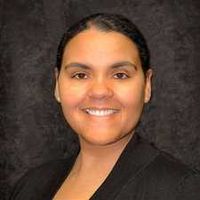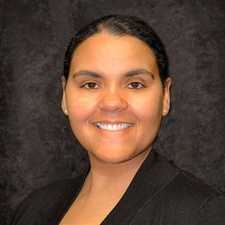Net Worth Calculator
If you sold all your assets and paid all your debts, what would be left over? That’s your net worth. Calculate it here.


Profit and prosper with the best of Kiplinger's advice on investing, taxes, retirement, personal finance and much more. Delivered daily. Enter your email in the box and click Sign Me Up.
You are now subscribed
Your newsletter sign-up was successful
Want to add more newsletters?

Delivered daily
Kiplinger Today
Profit and prosper with the best of Kiplinger's advice on investing, taxes, retirement, personal finance and much more delivered daily. Smart money moves start here.

Sent five days a week
Kiplinger A Step Ahead
Get practical help to make better financial decisions in your everyday life, from spending to savings on top deals.

Delivered daily
Kiplinger Closing Bell
Get today's biggest financial and investing headlines delivered to your inbox every day the U.S. stock market is open.

Sent twice a week
Kiplinger Adviser Intel
Financial pros across the country share best practices and fresh tactics to preserve and grow your wealth.

Delivered weekly
Kiplinger Tax Tips
Trim your federal and state tax bills with practical tax-planning and tax-cutting strategies.

Sent twice a week
Kiplinger Retirement Tips
Your twice-a-week guide to planning and enjoying a financially secure and richly rewarding retirement

Sent bimonthly.
Kiplinger Adviser Angle
Insights for advisers, wealth managers and other financial professionals.

Sent twice a week
Kiplinger Investing Weekly
Your twice-a-week roundup of promising stocks, funds, companies and industries you should consider, ones you should avoid, and why.

Sent weekly for six weeks
Kiplinger Invest for Retirement
Your step-by-step six-part series on how to invest for retirement, from devising a successful strategy to exactly which investments to choose.
Don’t get obsessed with accounting for every penny. Ballpark values will do, especially when it comes to tangible, illiquid items like collections.
See below for definitions of terms in this calculator and read our guidance on how to establish more accurate values for your various assets.
How to calculate your assets:
Cash: what you have on hand, what’s in your checking accounts and what’s in your savings accounts. Include any savings bonds and certificates of deposit.
Retirement savings: the value of your 401(k), IRA, or other defined-contribution plans. Pensions can be tricky to value.
Other investments/brokerage accounts: Draw from your most recent statements for stocks, bonds, mutual funds and other negotiable instruments.
Businesses you own: While these could be potentially significant assets, they may be illiquid or have significant debt. You will know best how to value them for your personal circumstances.
Life insurance or annuities: Your premium payments on a whole-life insurance policy add to your net worth by increasing your policy’s cash value (the amount you’d get if you cashed it in). Also include the surrender value of any annuities you own.
Primary Residence: If you are a homeowner, this is likely to be your biggest asset. Online calculators can help you get an estimate, but also check to find out how much similar homes in your area are selling for. The same goes for a rental or vacation property you might own.
Property: While cars are relatively easy to value with online guides, other tangible items can be more difficult. Consult specialty guides (or look at online auction sale prices of comparables) and be conservative.
From just $107.88 $24.99 for Kiplinger Personal Finance
Become a smarter, better informed investor. Subscribe from just $107.88 $24.99, plus get up to 4 Special Issues

Sign up for Kiplinger’s Free Newsletters
Profit and prosper with the best of expert advice on investing, taxes, retirement, personal finance and more - straight to your e-mail.
Profit and prosper with the best of expert advice - straight to your e-mail.
Related Content
Profit and prosper with the best of Kiplinger's advice on investing, taxes, retirement, personal finance and much more. Delivered daily. Enter your email in the box and click Sign Me Up.

Carla Ayers joined Kiplinger in 2024 as the eCommerce and Personal Finance Editor. Her professional background spans both commercial and residential real estate, enriching her writing with firsthand industry insights.
Carla has worked as a personal finance and real estate writer for Rocket Mortgage, Inman and other industry publications.
She is passionate about making complex real estate and financial topics accessible to all readers. Dedicated to transparency and clarity, her ultimate goal is to help her audience make informed and confident decisions in their financial pursuits.
-
 Ask the Tax Editor: Federal Income Tax Deductions
Ask the Tax Editor: Federal Income Tax DeductionsAsk the Editor In this week's Ask the Editor Q&A, Joy Taylor answers questions on federal income tax deductions
-
 States With No-Fault Car Insurance Laws (and How No-Fault Car Insurance Works)
States With No-Fault Car Insurance Laws (and How No-Fault Car Insurance Works)A breakdown of the confusing rules around no-fault car insurance in every state where it exists.
-
 7 Frugal Habits to Keep Even When You're Rich
7 Frugal Habits to Keep Even When You're RichSome frugal habits are worth it, no matter what tax bracket you're in.
